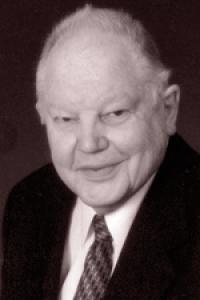Nelson Bunker Hunt facts for kids
Quick facts for kids
Nelson Bunker Hunt
|
|
|---|---|
 |
|
| Born | February 22, 1926 El Dorado, Arkansas, U.S.
|
| Died | October 21, 2014 (aged 88) |
| Nationality | American |
| Occupation |
|
| Political party | Republican |
| Spouse(s) |
Caroline Lewis
(m. 1951) |
| Parent(s) |
|
| Relatives |
|
| Awards |
Thoroughbred horse racing:
|
Nelson Bunker Hunt (born February 22, 1926 – died October 21, 2014) was a very rich American businessman. He worked in the oil industry. He was also famous for trying to control the world's silver market with his brothers, William Herbert and Lamar. This attempt didn't work out, and he lost a lot of his money. Besides business, he loved racehorses and was a big supporter of a group called the John Birch Society.
Contents
About Nelson Bunker Hunt
Nelson Bunker Hunt was born in El Dorado, Arkansas. He spent most of his life in Dallas, Texas. His father was H. L. Hunt, a very successful oil businessman. His father started Placid Oil, which was once one of the biggest independent oil companies.
Nelson had six brothers and sisters. He was married to Caroline Lewis Hunt for 63 years. They had four children together. Nelson Bunker Hunt passed away in October 2014, at the age of 88.
His Business Adventures
Nelson Bunker Hunt was important in finding and developing oil fields in Libya. In 1973, the government of Libya took control of these oil businesses.
Hunt also owned Titan Resources Corporation, based in Dallas. This company still looks for oil in North Africa. He was also the chairman of Hunt Exploration and Mining Company (HEMCO).
The Silver Market Story
In the early 1970s, Nelson Hunt and his brothers, William Herbert and Lamar, started buying huge amounts of silver. By 1979, they had bought so much silver that they almost controlled the entire global market. They made a lot of money, estimated to be billions of dollars, from this silver buying.
Because the Hunt brothers bought so much silver, its price went way up. In September 1979, an ounce of silver cost about $11. By January 1980, it jumped to $50 an ounce! But then, the price of silver suddenly dropped. This big drop happened on a day known as "Silver Thursday".
Later, in 1989, Nelson Bunker Hunt had to pay a $10 million fine. This was because he was found to have tried to control the silver market. He was also not allowed to trade in commodity markets anymore.
His Political Involvement
Nelson Bunker Hunt was very active in conservative politics. He was a member of the Council for the John Birch Society. He also gave money to support certain politicians, like Strom Thurmond and George Wallace.
He helped choose the vice presidential candidate for George Wallace in 1968. Hunt also supported other conservative groups. For example, he was a main sponsor of the Western Goals Foundation. He also gave a lot of money to The National Endowment for the Preservation of Liberty (NEPL).
Hunt was also involved with religious organizations. He was the past Chairman of the Board of the Bible Society of Texas. He also gave a lot of money to Campus Crusade for Christ International. He even helped provide money for the 1979 film Jesus.
Thoroughbred Horse Racing
Nelson Bunker Hunt loved Thoroughbred horse racing. In 1955, he bought his first racehorses. By the 1970s, his horse breeding program was one of the biggest in the world. He won the U.S. Eclipse Award for Outstanding Breeder three times.
He owned Bluegrass Farm in Lexington, Kentucky, which was a huge farm. He raced his horses in both Europe and North America. Some of his famous horses included Vaguely Noble, Dahlia, Empery, and Exceller.
In 1973 and 1974, he was named the best horse owner in British flat racing. In 1976, his horse Empery won The Derby, a very famous race. The United States National Thoroughbred Racing Association called him a "legendary owner-breeder." Overall, he bred 158 horses that won major races. He also owned or bred 25 champion horses.
When he faced financial difficulties, he had to sell his horses. In 1988, he sold 580 horses, which brought in over $46 million. This was the highest amount ever made from a thoroughbred auction at that time. In 1999, he returned to owning horses. He said he just wanted to "have some fun and try to get lucky racing."
Images for kids
 | Claudette Colvin |
 | Myrlie Evers-Williams |
 | Alberta Odell Jones |


